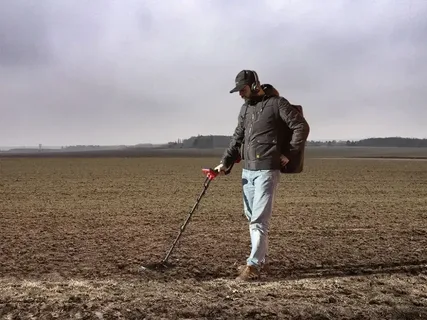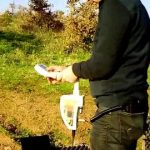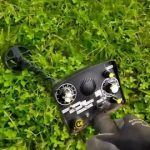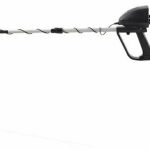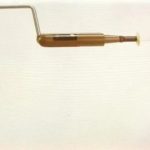Beginner Gold Prospecting is an exciting and rewarding hobby that allows individuals to search for and extract the valuable mineral, gold. Whether you are a nature enthusiast, adventurer, or history buff, learning the basics of beginner gold prospecting can open up a whole new world of discovery. In this guide, we will explore the essential techniques, tools, and knowledge necessary for beginners to embark on their gold prospecting journey. Whether you are simply curious about the process or are ready to dive headfirst into the world of prospecting, this guide will provide you with the foundational knowledge to get started.
Discovering the Basics of Beginner Gold Prospecting can be an exciting and rewarding experience for those interested in exploring the outdoors and uncovering valuable treasures. The process involves using simple tools such as a gold pan and shovel to search for gold in rivers, streams, and other natural deposits. Basic techniques and tips for identifying potential gold-bearing areas, as well as understanding the geology of gold deposits, are essential for beginners to learn. Additionally, knowledge of local regulations and laws pertaining to gold prospecting is important for anyone getting started in this hobby. With the right information and guidance, beginner gold prospectors can learn how to effectively search for and recover gold while enjoying the outdoors.
Gold Panning 101: A Beginner’s Guide to Finding Gold
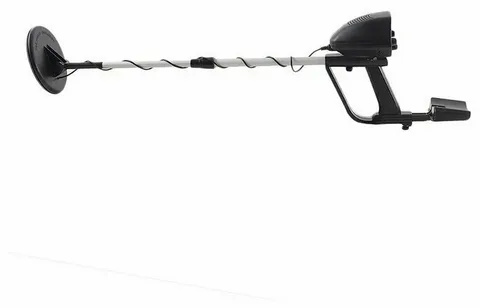
Gold Panning 101: A Beginner’s Guide to Finding Gold provides comprehensive information and step-by-step instructions for those new to the practice of gold panning. The book covers topics such as selecting the right equipment, understanding gold-bearing deposits, and techniques for effectively panning for gold. It also includes tips for identifying potential gold-rich areas and proper etiquette for prospecting on public lands. The guide is designed to help beginners start their gold panning journey with confidence and success.
The Essential Tools for Starting Your Gold Prospecting Journey
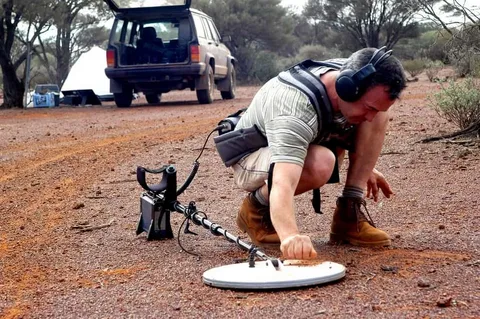
Gold prospecting requires some essential tools to help you get started on your journey. Some of these tools include a gold pan, a shovel and a pick for digging, a classifier to help separate rocks and gravel, and a snuffer bottle to collect and store any gold you find. You may also want to consider investing in a metal detector to help locate potentially hidden gold nuggets. Additionally, it’s important to have a good pair of sturdy shoes or boots, as well as protective gear such as gloves and knee pads to ensure your safety while out in the field. These tools can help you get started on your gold prospecting journey and increase your chances of finding success.
Where to Find Gold: Locations and Tips for Beginners
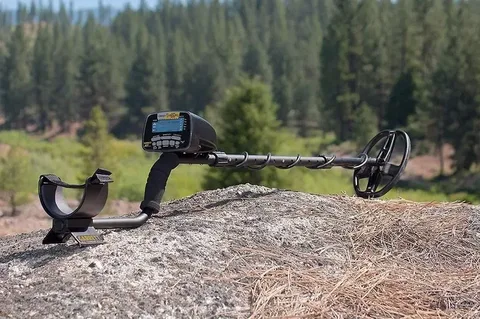
There are several locations where gold can be found, including rivers, streams, and in soil. Some popular spots for gold prospecting include the Appalachian Mountains, the American River in California, and the Black Hills in South Dakota. Equipment such as gold pans, sluice boxes, and metal detectors can be used to aid in finding gold. It’s important for beginners to research the specific laws and regulations regarding gold prospecting in their area, as well as to obtain any necessary permits. Additionally, joining a local prospecting club or seeking out experienced prospectors can provide valuable tips and guidance for finding gold.
Understanding Gold Deposits: A Beginner’s Introduction
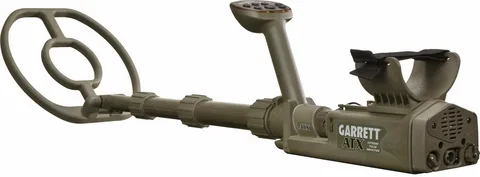
Understanding Gold Deposits: A Beginner’s Introduction is a comprehensive guide that provides an overview of how gold deposits are formed and distributed in the Earth’s crust. The book covers the geological processes involved in the formation of gold deposits, including the role of tectonic and hydrothermal activity. It also explains the different types of gold deposits, such as placer deposits, lode deposits, and epithermal deposits, and how they are explored and mined. Additionally, the book discusses the economic significance of gold deposits and their impact on local and global economies. This beginner’s introduction is an essential resource for anyone interested in learning about the basics of gold deposits and their significance in the mining industry.
The Dos and Don’ts of Beginner Gold Prospecting
Dos:
1. Do research and educate yourself on the basics of gold prospecting, including different methods and equipment.
2. Do obtain permission before prospecting on private property and adhere to any local regulations or restrictions.
3. Do bring appropriate gear such as a gold pan, shovel, and a metal detector if available.
4. Do explore areas with known gold deposits, such as riverbanks, streams, and mineralized rock formations.
5. Do test different locations and pay attention to geological indicators of potential gold deposits.
Don’ts:
1. Don’t trespass on private property or prospect in protected or restricted areas.
2. Don’t assume every shiny object is gold – it’s important to know how to identify real gold from other minerals.
3. Don’t leave a mess – always practice responsible prospecting and leave the area as you found it.
4. Don’t ignore safety precautions – be aware of potential hazards such as unstable terrain and wildlife.
5. Don’t give up easily – gold prospecting takes patience and perseverance, so stay committed to learning and improving your skills.
Beginner’s Luck: Real Stories of First-Time Gold Prospectors
Beginner’s Luck: Real Stories of First-Time Gold Prospectors is a book that features true stories of individuals who have found success in gold prospecting for the first time. It provides insights into the experiences and discoveries of these new prospectors, offering inspiration and guidance for those who are interested in trying their hand at gold prospecting for the first time. The book covers various aspects of gold prospecting, including equipment, techniques, and the thrill of striking gold for the first time.
7 Common Mistakes to Avoid When Starting Gold Prospecting
1. Rushing into it. Gold prospecting requires time, effort, and patience. It’s important to take your time, research the area, and plan your prospecting activities carefully.
2. Not having the right equipment. It’s crucial to have the proper tools and equipment for gold prospecting, such as a metal detector, sluice box, or gold pan. Using the wrong equipment can lead to frustration and a lack of success.
3. Failing to obtain the necessary permits. Before you start prospecting for gold, make sure you have all the required permits and permissions from the relevant authorities. Prospecting without the proper permits can lead to legal trouble.
4. Ignoring safety precautions. Gold prospecting can be physically demanding and potentially dangerous. Always prioritize safety by wearing appropriate gear, staying hydrated, and being aware of your surroundings.
5. Not doing enough research. Before heading out to prospect for gold, it’s essential to research the area thoroughly. This includes understanding the geology of the area, historical mining activity, and potential gold-bearing locations.
6. Giving up too soon. Gold prospecting can be challenging, and it’s common for beginners to get discouraged if they don’t find gold right away. Persistence is key, and it’s important to keep trying and learning from each prospecting trip.
7. Disregarding local regulations and guidelines. Each area has its own rules and regulations regarding gold prospecting. It’s important to familiarize yourself with these guidelines and follow them to avoid legal issues.
Beginner-Friendly Gold Prospecting Techniques to Try Today
See also: minelab gold monster
Gold panning is one of the most beginner-friendly techniques for gold prospecting. It involves using a pan to carefully separate gold from other sediments in a stream or river.
Metal detecting is another accessible method for beginners. Using a metal detector, you can search for gold nuggets or flakes in areas known for gold deposits.
Sluicing is a simple yet effective technique that involves using a sluice box to concentrate and separate gold from the surrounding gravel.
Another beginner-friendly method is crevicing, which involves carefully searching for gold in the cracks and crevices of rocks and boulders along a stream or river.
Finally, digging and dredging in shallow water can also be an accessible technique for beginners to try their hand at gold prospecting.
Getting Started: How to Research and Plan Your Gold Prospecting Trip
“Getting Started: How to Research and Plan Your Gold Prospecting Trip” is a comprehensive guide that provides step-by-step instructions for individuals looking to engage in gold prospecting. The guide covers essential aspects such as researching potential locations, obtaining permits and permissions, understanding local regulations, and planning for necessary equipment and resources. It also offers valuable insights on safety measures, potential challenges, and the best practices for a successful gold prospecting trip. This resource serves as a valuable tool for both beginners and experienced prospectors looking to maximize their chances of finding gold while ensuring a safe and well-prepared adventure.
Gold Prospecting 101: Tips from Seasoned Prospectors for Beginners
Gold Prospecting 101: Tips from Seasoned Prospectors for Beginners is a comprehensive guide to getting started in the world of gold prospecting. The book covers everything from understanding the basics of geology and how gold deposits are formed, to practical tips for finding and extracting gold from the earth. The seasoned prospectors who contributed to the book share their years of experience and knowledge, providing valuable insights for beginners. This is a must-read for anyone looking to try their hand at gold prospecting.




